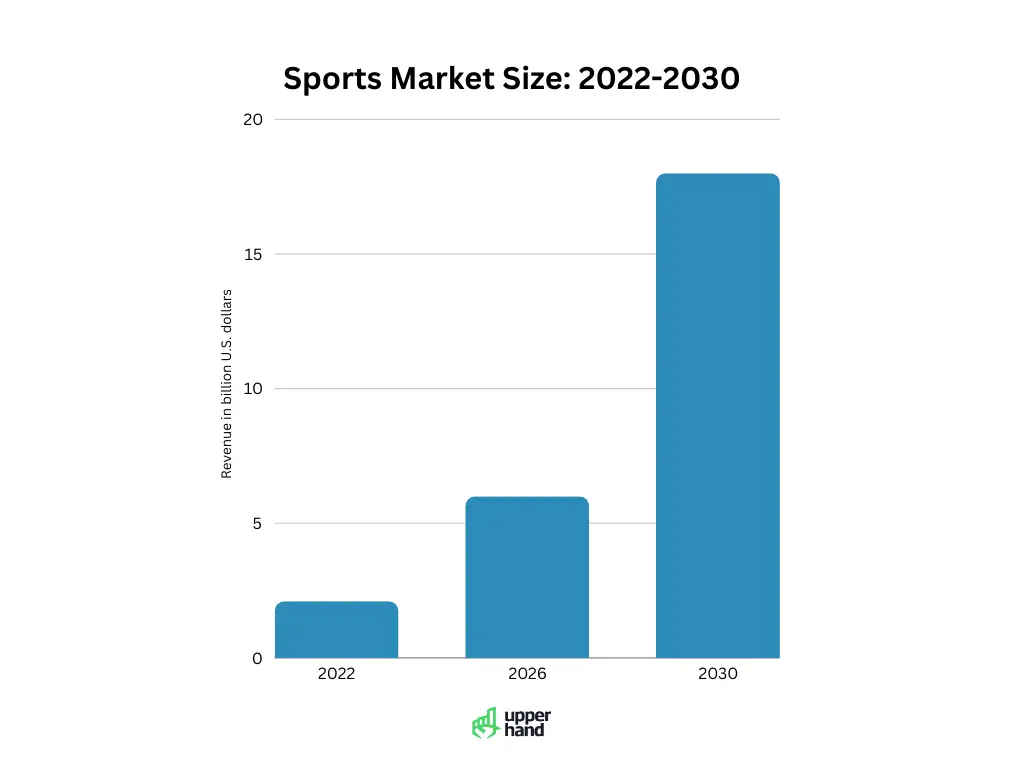
In short, a successful sports coaching management strategy needs more than schedules and staffing—it requires alignment, automation, and insight. Many facilities focus on the surface-level

The sports industry, a constantly changing field, has always been at the forefront of adopting technological innovations to enhance the game, both on and off the field.
Technology has always been at the heart of transforming the sports industry, ranging from leveraging analytics to boosting player performance.
Today, the spotlight is on Artificial Intelligence (AI) and its advancements in areas like optimized match scheduling, the efficient utilization of sports facilities, and enhancing athlete safety and performance.
Artificial intelligence (AI) is rapidly becoming an integral part of the sports sector, impacting everything from post-match analysis and real-time gameplay to enhancing how fans enjoy the game. AI is also playing a crucial role in boosting athletes’ performance levels. For instance, the market size was USD 2.1 Billion in 2022 and will grow at a CAGR of 30.10% from 2023-2030.

AI-driven algorithms are now capable of creating optimized sports schedules that consider numerous variables such as team availability, logistics, audience preferences, and even potential weather conditions. This optimization not only improves operational efficiency but also enhances the spectator experience by scheduling events at times most convenient for the largest audience.
By analyzing historical data, AI can identify patterns and preferences specific to different regions and demographics, enabling sports leagues to tailor their schedules to when audiences are most likely to tune in. This level of optimization ensures that games are not only accessible but also reach their maximum potential audience.
Leveraging AI’s predictive data analytics are being used to adjust ticket prices in real-time based on demand, seasonality, and team performance. This dynamic pricing strategy benefits both the fans, by offering more flexible pricing options, and the sports organizations, by maximizing revenue.
Furthermore, this adaptive pricing model, underpinned by AI, introduces a level of market responsiveness previously unattainable in the sports industry. By analyzing vast amounts of data, including past sales trends, social media sentiment, and even upcoming game significance, AI algorithms can fine-tune ticket prices to reflect the real-time value of a sporting event. This not only ensures that fans have access to tickets at prices that accurately reflect the current demand and team allure but also allows sports organizations to optimize their ticket inventory, reducing the likelihood of unsold seats.
AI algorithms can analyze viewer preferences and historical viewing patterns to suggest personalized game schedules, improving engagement rates. This personalization extends to offering tailor-made content, thereby deepening the fan’s connection to the sport.
This level of personalization facilitated by AI doesn’t stop at scheduling and content curation; it also extends into the realm of interactive experiences and social media engagement. AI systems can leverage the data on viewer preferences to create interactive content that resonates with the audience, such as quizzes, games, and polls related to their favorite sports or teams.
With AI, the scheduling of events can be optimized to ensure the efficient use of sports facilities, reducing downtime and maximizing the return on investment in these infrastructures.
Furthermore, AI’s capabilities in optimizing event schedules contribute significantly to environmental sustainability efforts within the sports industry. By ensuring that facilities are used in the most efficient manner possible, energy consumption and operational costs are minimized.
AI tools can predict potential injury risks by analyzing game schedules and player performance data. This insight allows for the scheduling of adequate rest periods, reducing the likelihood of injuries.
This enables coaching staff to tailor training programs that not only optimize performance but also proactively address any potential health issues.
The result is a more personalized and adaptive training routine that can dynamically adjust to the athlete’s current physical state, reducing the risk of overtraining and ensuring athletes’ performance is in peak condition for their scheduled events.
Beyond scheduling, AI enhances the overall fan experience through virtual reality (VR) and augmented reality (AR) technologies, offering immersive ways to enjoy sports.
Fans can now choose from a variety of virtual vantage points, from the sidelines to a bird’s-eye view, or even from the perspective of their favorite athlete during a live game.
This level of immersion is further enhanced by AI’s ability to curate content based on the viewer’s preferences, such as highlighting key plays, providing real-time statistics, and offering interactive learning experiences about the game’s rules or player movements.
AI assists in coordinating the global sports calendar, ensuring major events do not overlap, and optimizing international viewership.
By analyzing historical viewership data and social media trends across various regions, AI-powered can predict optimal timings for events to maximize global audience engagement.
The strategic planning enabled by AI ensures that fans around the world can enjoy a continuous stream of sports entertainment without the frustration of scheduling conflicts.
While the potential of AI in sports scheduling and beyond is immense, it also presents challenges. Issues of data privacy, the digital divide among fans, and the need for transparent AI decision-making processes are paramount. As the technology advances, stakeholders must navigate these challenges thoughtfully.
Consider the impact of a perfectly optimized sports schedule on your experience as a fan. How would it change your engagement with your favorite sports? Or, from a professional perspective, envision the efficiencies and opportunities AI-driven scheduling could unlock.
AI’s role in sports scheduling is just the tip of the iceberg. As we look forward, the integration of AI across the sports industry promises to not only revolutionize how games are planned and experienced but also how they are played and managed.
This exploration encourages you to reflect on how AI-enhanced sports scheduling might improve your enjoyment as a fan or reveal new efficiencies and possibilities from a professional viewpoint. AI’s journey in sports is about revolutionizing the entire landscape of the industry.

In short, a successful sports coaching management strategy needs more than schedules and staffing—it requires alignment, automation, and insight. Many facilities focus on the surface-level

If you’re looking to grow your sports facility, you already know marketing is key. But let’s be honest—it’s hard to find the time to write